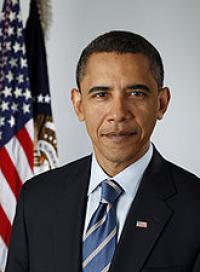Home | Political post | President of the United States
|
|
|
Article II of the U.S. Constitution vests the executive power of the United States in the president and charges him with the execution of federal law, alongside the responsibility of appointing federal executive, diplomatic, regulatory, and judicial officers, and concluding treaties with foreign powers, with the advice and consent of the Senate. The president is further empowered to grant federal pardons and reprieves, and to convene and adjourn either or both houses of Congress under extraordinary circumstances. Since the founding of the United States, the power of the president and the federal government have grown substantially and each modern president, despite possessing no formal legislative powers beyond signing or vetoing congressionally passed bills, is largely responsible for dictating the legislative agenda of his party and the foreign and domestic policy of the United States. The president is frequently described as the most powerful person in the world. The president is indirectly elected by the people through the Electoral College to a four-year term, and is one of only two nationally elected federal officers, the other being the Vice President of the United States. The Twenty-second Amendment, adopted in 1951, prohibits anyone from ever being elected to the presidency for a third full term. It also prohibits a person from being elected to the presidency more than once if that person previously had served as president, or acting president, for more than two years of another person's term as president. In all, 43 individuals have served 55 four-year terms. On January 20, 2009, Barack Obama became the forty-fourth and current president. |




 RSS
RSS